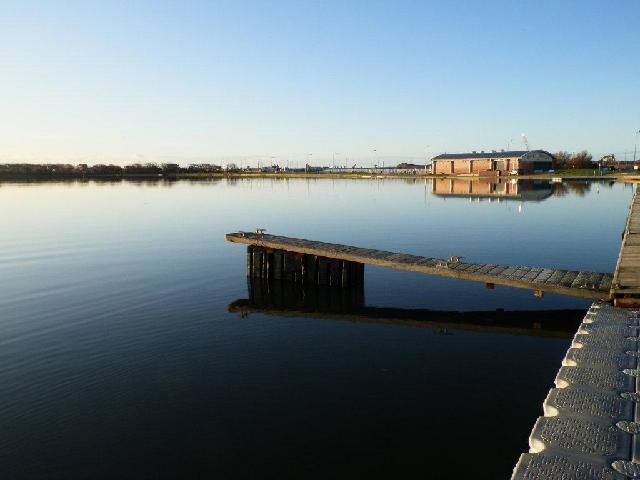How we are improving water quality at Rhyl’s Marine Lake and across Denbighshire

Our bathing waters are so important – for our health and wellbeing, for our economy and for the plants and wildlife they support.
Wales has some of the best bathing waters in the UK, and we’re proud of our record with bathing water quality.
Marine Lake, an artificial lake in Rhyl, Denbighshire, that is used mainly for water sports, was the only bathing water across Wales to fail the sufficient standard in 2022.
The latest Bathing Water Classifications has seen Marine Lake improve from Poor to Sufficient rating and follows a lot of work behind the scenes to identify the cause of elevated bacteria levels shown to be present in 2022.
Over the past year our officers and Denbighshire County Council colleagues led a joint investigation that revealed several issues which caused the downgrading.
The joint investigation found a leaking sluice gate that meant Marine Lake’s level wasn’t being properly maintained between tides.
It also identified that the initial refilling of the lake was more river water than sea water from each high tide. River water can contain more bacteria than sea water due to sewage treatment works, urban and agricultural run-off.
The partnership-led investigation likewise revealed the automation system that controls the lake hadn’t been fully functioning during 2021. The system should open and close automatically, however this process was being manually carried out.
Colleagues at Denbighshire County Council have carried out work this year to replace the automation system and have worked with Dŵr Cymru Welsh Water to include a radio link with the nearby storm overflow. This will help ensure that the sluice gate doesn’t open within 24 hours of a storm overflow spill taking place during periods of heavy rainfall.
The leaking sluice gate will also be replaced in the new year ahead of next year’s season. This work will result in better maintained lake levels, therefore reducing the amount of water required to top it up between tides.
Our officers have also been busy improving water quality across other areas of Denbighshire.
Important work was completed late last year to help improve water quality and encourage biodiversity in the watercourse of Dŵr Ial, a tribituary of the River Clwyd.
New fencing over 1km long was installed to restrict livestock, whilst a new drinking point was created by accessing an underground spring through a solar pump solution.
Crucial work was also completed on the River Alyn in Llandegla to improve its water quality and provide a boost to the river’s wildlife population.
The work included 700m of double bank stock-proof fencing being erected to exclude all livestock from the watercourse. A replacement drinking supply for the livestock was created nearby thanks to a newly installed solar pump.
We also worked closely with colleagues at Coleg Cambria, a Denbighshire agricultural college, to help improve water quality in the area.
We installed 795m of new fencing along a watercourse at Llysfasi Farm to restrict livestock from entering the water and causing pollution. The installation of a new solar pump and six water troughs also provided an alternative water supply.
Further projects are currently ongoing throughout North East Wales as we strive to improve water quality across the region. Additional details of these new projects will be shared over the coming months.
The Bathing Waters Classifications are assessed yearly and based over a four-year period to help provide a better assessment of water quality. There are four classifications: excellent, good, sufficient and poor. When the samples NRW officers take fail to meet a certain threshold, the bathing water is said to have failed the criteria outlined in the Bathing Waters Regulations and is then classified as ‘Poor’.
